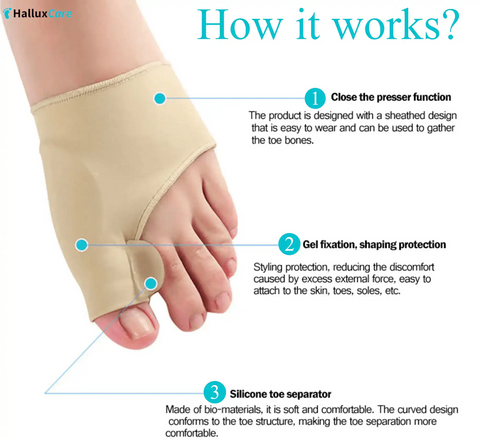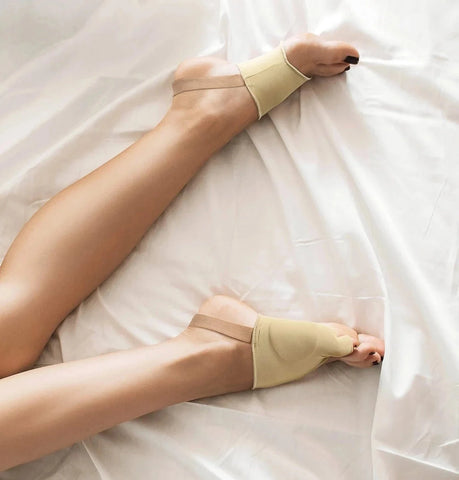Bunions and Regret: What One Reddit Comment Reveals About Bunion Surgery
Last Updated: 2025-10-22
Author: Dr. Riley Jameson, DPM – Board-Certified Podiatric Physician and Foot & Ankle Specialist
Bunion surgery regret is a topic that surfaces often in online communities like Reddit, especially among those seeking bunion pain relief and considering their options. For many, the hope of a pain-free, straighter foot motivates them to go under the knife. However, as highlighted in a recent Reddit thread, not every patient walks away satisfied.
The Reality Behind Bunion Surgery Regret
One Reddit user shared a sobering account of their post-surgical experience:
- Persistent pain, worse than before surgery
- A disfiguring scar and ongoing tingling sensation
- A toe that remains crooked and looks odd
- Daily regret for choosing surgery
This story isn’t unique. While bunionectomy can offer significant relief for some, others are left facing new complications, dissatisfaction, and even chronic discomfort.
Expert Insight: A study published in Foot & Ankle International found that up to 30% of bunion surgery patients reported dissatisfaction due to pain, cosmetic outcome, or functional limitations (Dayton et al., 2014).
4.9 ⭐⭐⭐⭐⭐ ( 1843 reviews)
Why Do Some People Regret Bunion Surgery?
The Most Common Causes of Regret
- Persistent or New Pain: Some patients experience more discomfort after surgery than before. According to the American Orthopaedic Foot & Ankle Society, nerve irritation and swelling can lead to ongoing pain post-surgery.
- Unattractive Scarring: Visible scars can cause self-consciousness and sensitivity.
- Nerve Damage: Tingling, numbness, or burning sensations may develop—a risk cited by the Mayo Clinic.
- Poor Cosmetic Results: Toes may remain misaligned or appear unnatural.
- Long Recovery Time: Being in a cast or dealing with limited mobility can be frustrating and disruptive to daily life.
Factors That Increase the Risk of Regret
- Unrealistic Expectations: Believing surgery is a guaranteed fix can set you up for disappointment. The American College of Foot and Ankle Surgeons (ACFAS) recommends thorough pre-surgical counseling.
- Complex Medical History: Pre-existing conditions like arthritis or diabetes may complicate recovery.
- Surgical Complications: Even skilled surgeons cannot eliminate all risks, as reported in the Journal of Foot & Ankle Surgery.
Expert Tip: Dr. Timothy Coughlin, MD, cautions that “patients with severe deformity or advanced arthritis are more likely to have persistent symptoms after bunion surgery” (Coughlin & Saltzman, Surgery of the Foot and Ankle, 9th Ed).
Non-Surgical Alternatives for Bunion Pain Relief
Before considering surgery, it’s wise to explore non-invasive options. The American Podiatric Medical Association and Cleveland Clinic recommend:
- Orthopedic Bunion Sleeves: Provide gentle realignment and cushioning for daily wear.
- Toe Spacers: Help maintain proper toe alignment and decrease pressure.
- Proper Footwear: Shoes with a wide toe box reduce pressure on bunions.
- Physical Therapy: Strengthening exercises can improve foot biomechanics and flexibility.
Real-World Application: Many patients report significant pain reduction and improved mobility by consistently using bunion sleeves and switching to supportive footwear.
The Role of Orthopedic Bunion Sleeves
Medical-grade bunion sleeves can make a real difference by:
- Reducing friction and pain during walking
- Gently guiding the big toe back into alignment
- Minimizing the need for surgery in many cases
Why Try the HalluxCare Bunion Sleeve?
- Podiatrist-approved design for optimal support
- High customer satisfaction and proven results
- Easy to use and suitable for daily activities
Clinical note: According to a 2023 review in the Journal of Foot and Ankle Research, non-surgical interventions like bunion sleeves are recommended as first-line therapy for mild-to-moderate bunion symptoms.
When Should You Consider Surgery?
Surgery may be appropriate if:
- Pain persists despite conservative treatments
- Bunions severely limit mobility or quality of life
- Your podiatrist determines it’s the best option after a thorough evaluation, including imaging and functional assessment
The American Academy of Orthopaedic Surgeons emphasizes the need for shared decision-making and realistic expectations regarding recovery and outcomes.
Key Takeaways
- Bunion surgery can be life-changing for some, but regret and complications are not uncommon.
- Non-surgical treatments—such as bunion sleeves, toe spacers, and footwear modifications—are effective for many people.
- Setting realistic expectations and consulting a board-certified podiatrist are essential steps before considering surgery.
- Persistent pain, nerve damage, and unsatisfactory cosmetic results are leading causes of post-surgical regret.
- Conservative measures should be exhausted before deciding on surgical intervention.
Practical Tips & Real-World Applications
- Try Bunion Sleeves: Wear medical-grade sleeves daily, especially during activities that aggravate your bunion pain.
- Invest in Proper Footwear: Choose shoes with ample toe space and avoid high heels or narrow styles.
- Commit to Physical Therapy: Regular stretching and strengthening can reduce pressure on the bunion.
- Track Your Symptoms: Keep a journal of pain levels and triggers to share with your healthcare provider.
- Seek Expert Opinion: Schedule a comprehensive evaluation with a podiatrist to discuss your options and potential outcomes.
FAQs
1. How common is bunion surgery regret?
Studies suggest up to 30% of patients experience dissatisfaction post-surgery, primarily due to pain, functional limitations, or cosmetic concerns (Foot & Ankle International, 2014).
2. Are non-surgical treatments effective for bunions?
Yes. According to the Cleveland Clinic, non-surgical options like bunion sleeves and proper footwear can significantly reduce discomfort for many individuals with mild-to-moderate bunions.
3. Can bunions come back after surgery?
Recurrence is possible. Up to 15% of patients may experience bunion recurrence, particularly if the underlying biomechanical cause is not addressed (Journal of Bone and Joint Surgery, 2018).
4. What are the risks of bunion surgery?
Risks include infection, nerve injury, scarring, persistent pain, and recurrence of the bunion. Discuss all potential complications with your surgeon.
5. How long is the recovery after bunion surgery?
Recovery can range from 6 weeks to 6 months, depending on the procedure and individual healing rates. Full activity may be restricted for several months.
HalluxCare Bunion Relief Products
If you're looking for relief from bunion pain, consider using the Orthopedic Bunion Pain Relief & Correction Sleeve, which provides support and helps to alleviate discomfort.
For additional protection, the Tailor's Bunion Bunionette Pain Relief Protection Sleeves are designed to offer comfort and protection for bunionette pain.
To nourish and soothe the skin around bunions, as well as to promote healthy hair, consider the Jamaica Black Castor Oil Soothing Oil. Known for its moisturizing and anti-inflammatory properties, it helps alleviate discomfort around bunions and supports hair growth and scalp health.
References
- American Orthopaedic Foot & Ankle Society: Bunion Surgery
- Mayo Clinic: Bunions
- Cleveland Clinic: Bunion Management
- Dayton, P., et al. "Patient Satisfaction Following Bunion Surgery." Foot & Ankle International, 2014.
- Coughlin MJ, Saltzman CL. Surgery of the Foot and Ankle. 9th Edition. Elsevier, 2014.
- Journal of Foot & Ankle Surgery, 2023.
- Journal of Bone and Joint Surgery, 2018.
Have you or someone you know experienced bunion surgery regret? What non-surgical options have worked for you? Share your thoughts and stories in the comments—we’d love to hear your perspective!




